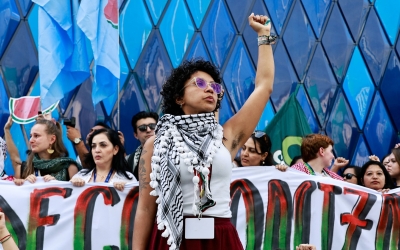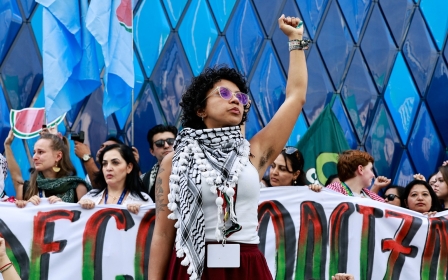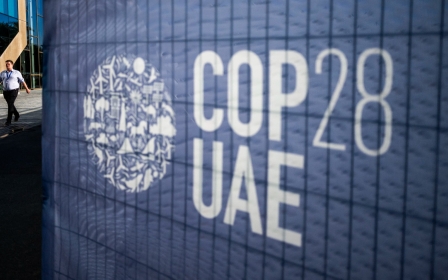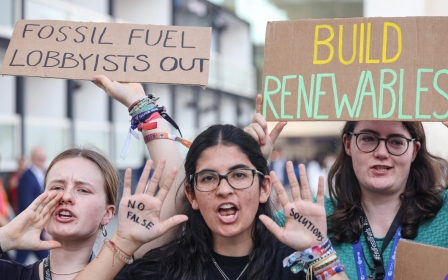Cop28: Critics of Israel's Gaza mass killings face 'unprecedented' UN policing
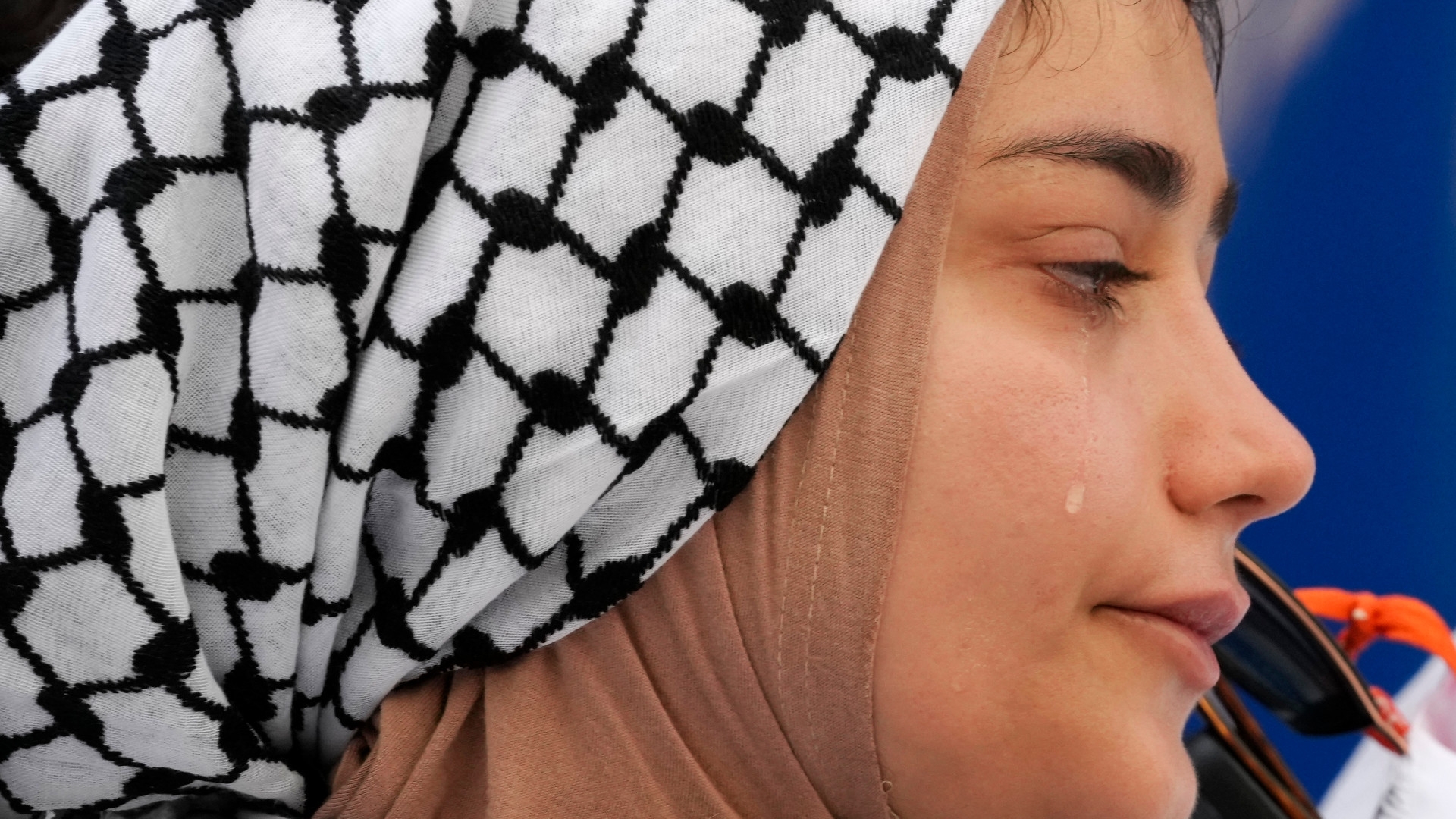
Civil society groups on Friday accused the UN climate secretariat (UNFCCC) of "unprecedented" policing of their actions and expressions of solidarity with Palestine at the Cop28 climate summit in Dubai.
Officials from War on Want and Climate Action Network International (Can) reported that activists have been threatened with removal from the summit for wearing keffiyehs or pro-Palestine badges inside the conference centre's blue zone, one of the "dedicated spaces" for protests at the summit.
The blue zone is UN-administered and therefore subject to UNFCCC regulations, while UAE laws in general ban any expression of dissent outside the Cop28 venue.
But activists have reported increasingly tight restrictions on speech used during pro-Palestine protests within the blue zone.
On Sunday, climate justice groups held a rally in the blue zone to demand a ceasefire. Unable to raise the Palestinian flag due to a ban on flags at the summit, demonstrators held aloft banners emblazoned with watermelons.
New MEE newsletter: Jerusalem Dispatch
Sign up to get the latest insights and analysis on Israel-Palestine, alongside Turkey Unpacked and other MEE newsletters
'We couldn't even use the words 'ceasefire now''
- Asad Rehman, War on Want director
While the UNFCCC permitted the rally, it imposed tight restrictions on the slogans and chants the protesters could use.
"We were told that we couldn't use the word 'apartheid'. We couldn't use the words 'settler colonialism'. We couldn't even use the words 'ceasefire now'," Asad Rehman, the director of War on Want, told MEE.
On Friday, the UNFCCC informed summit delegates that the chant "From the river to the sea, Palestine will be free" was officially banned at the conference.
While UNFCCC regulations have long stipulated that permission must be granted in advance for protests at Cop, applicants have now to specify what slogans and chants they intend to use.
"They are making political judgments about what is acceptable and not acceptable," Rehman said.
"I am a veteran of these [talks]," he said. "We have never experienced this level of intervention before... all of it specifically on the issue of Israel and Palestine."
UAE denies restrictions
On the first day of the climate summit, Rehman spoke on behalf of climate justice groups at a press conference to express solidarity with Palestine.
At 3am the following morning local time, he and other participants at the conference were told that their conference badges would be revoked.
"De-badging" of activists can result in deportation as Cop28 badges are linked to visas.
"They claimed that our press conference was really a political rally in support of Palestine," Rehman said.
"We took it all the way up to the UNFCCC's executive secretary... and said that, if we were de-badged, then it would lead to many other civil society organisations voluntarily hanging up their badges in solidarity. We're not willing to be silenced on the issue of Palestine.
"We have had countless people being told they would be de-badged if they wore a keffiyeh or badges calling for a ceasefire," Rehman said.
The UNFCCC attributed the restrictions to the Cop28 presidency.
However, when Rehman and other organisers asked the summit president, Sultan al-Jaber, directly if he was imposing the restrictions, he denied it.
"It's very likely that the pressure is coming from the United States and Israel and others inside the UN on this," Rehman said.
"Why are we not allowed to do here what we were allowed to do in Egypt [at Cop27]?" Rehman asked. "Why, in Egypt, are we allowed to raise the issue of political prisoners without any, any consequences from the UN?
"In fact, the UNFCC actively supported us and helped us do that. But when it comes to the issue of Israel and Palestine that's not been the case."
Middle East Eye delivers independent and unrivalled coverage and analysis of the Middle East, North Africa and beyond. To learn more about republishing this content and the associated fees, please fill out this form. More about MEE can be found here.


